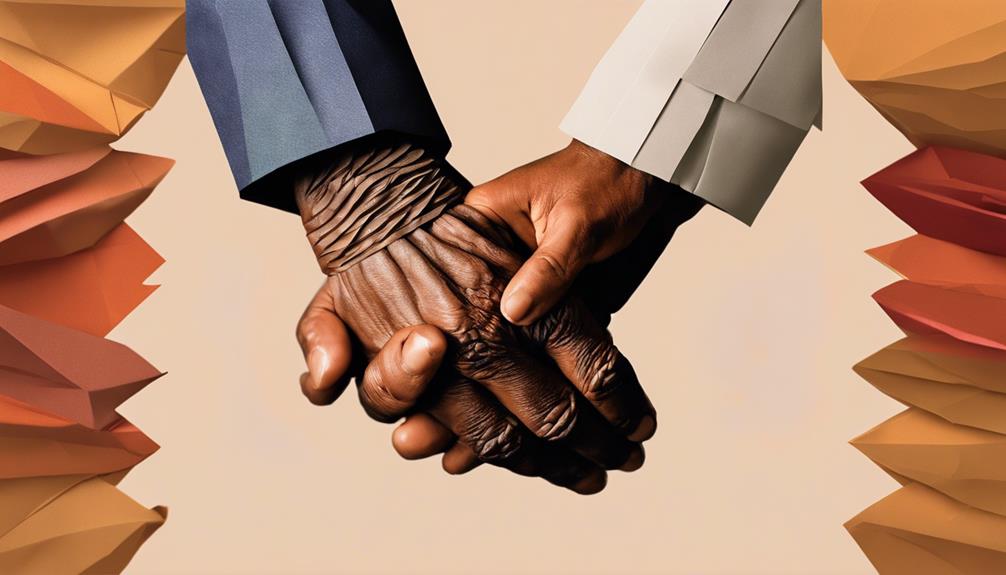You're about to uncover the secrets of famous negotiators who mastered the art of persuasion. From Mahatma Gandhi's nonviolent resistance to Winston Churchill's eloquence, you'll learn how to apply their techniques to achieve your own goals. Discover how historical figures like Abraham Lincoln, Queen Elizabeth I, and Martin Luther King Jr. used their negotiation skills to shape the world. By understanding their strategies, you'll be able to craft compelling arguments, build credibility, and establish rapport with others. As you explore the art of negotiation, you'll gain valuable insights to help you navigate complex situations and achieve remarkable breakthroughs – and that's just the beginning.
Key Takeaways
- Mahatma Gandhi mastered nonviolent resistance, civil disobedience, and fasting to negotiate for India's independence.
- Abraham Lincoln used storytelling, humor, and logical reasoning to persuade and unite the American people.
- Winston Churchill demonstrated eloquence, determination, and strategic thinking to rally Britain during World War II.
- Martin Luther King Jr. utilized peaceful protests, powerful speeches, and civil rights activism to negotiate for racial equality.
- Nelson Mandela employed inclusive dialogue, reconciliation, and collaboration to end apartheid in South Africa.
Mastering the Art of Persuasion
By grasping the psychological triggers that drive human decision-making, you can master the art of persuasion and effectively influence others.
To become a skilled persuader, it's vital to understand the psychology of influence and communication techniques. This involves using empathy, active listening, and framing to appeal to others' emotions and logic.
When you can put yourself in someone else's shoes and understand their perspective, you'll be better equipped to present compelling arguments that resonate with them.
Building credibility, establishing rapport, and presenting logical reasoning are also key in persuading others.
Remember, negotiation skills are valuable in all aspects of life, from business deals to everyday interactions.
By mastering the art of persuasion, you'll be able to effectively communicate your ideas and achieve your goals.
All rights reserved to those who are willing to learn and practice these essential skills.
Negotiation Tactics of Historical Figures
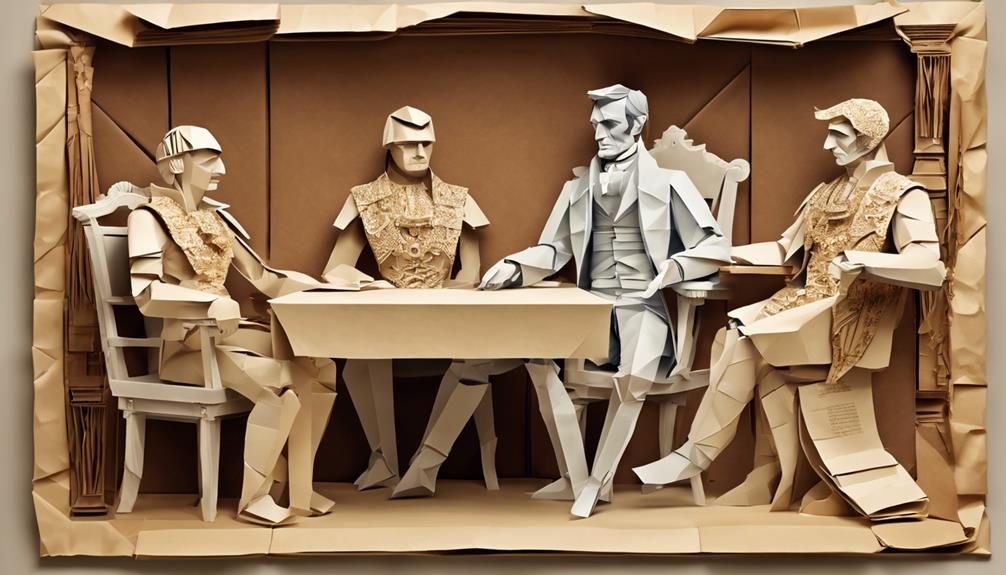
Throughout history, iconic leaders have demonstrated exceptional negotiation skills, and understanding their tactics can help you refine your own approach to persuasion. You can learn a thing or two from the masters.
For instance, Mahatma Gandhi's nonviolent resistance, civil disobedience, and fasting tactics persuaded British colonial rulers to grant India independence.
Abraham Lincoln's storytelling, humor, and logical reasoning helped preserve the Union during the Civil War.
Winston Churchill's eloquence, determination, and strategic thinking rallied allies and contributed to the Allied victory in World War II.
Queen Elizabeth I's diplomacy, intelligence, and political acumen enabled her to navigate complex negotiations and maintain power in the 16th century.
Martin Luther King Jr.'s peaceful protests, powerful speeches, and civil rights activism advanced equality and justice through negotiation.
Skilled Diplomats in World History
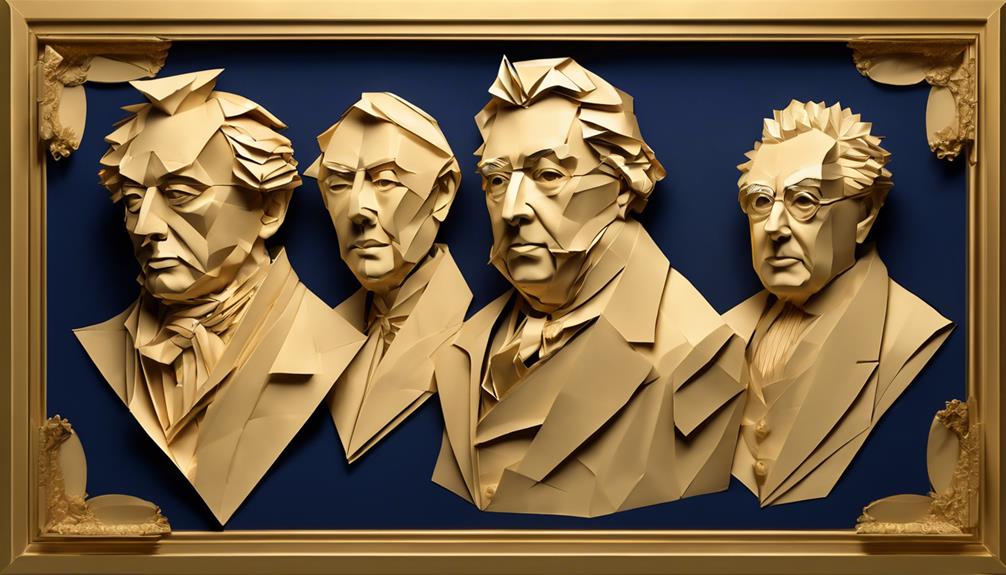
You can learn from the diplomatic mastery of skilled diplomats throughout history, who've successfully navigated complex international relations and secured their nations' interests through shrewd negotiation and clever diplomacy. Their expertise has shaped the course of nations, and you can benefit from studying their strategies.
Here are a few examples of skilled diplomats who made a significant impact:
- Queen Elizabeth I of England: She secured her reign and established England as a major power in the 16th century through skilled diplomacy and negotiation.
- Cardinal Richelieu: He utilized cunning negotiation tactics and strategic alliances to consolidate royal power and elevate France's position in European politics during the 17th century.
- Metternich: He played a key role in shaping post-Napoleonic Europe through his diplomatic skills and negotiation efforts at the Congress of Vienna in 1815.
These diplomats, along with others, have demonstrated the power of effective negotiation and diplomacy in achieving their goals. You can learn from their experiences and adapt their strategies to navigate complex situations and achieve your own goals.
Icons of Effective Communication
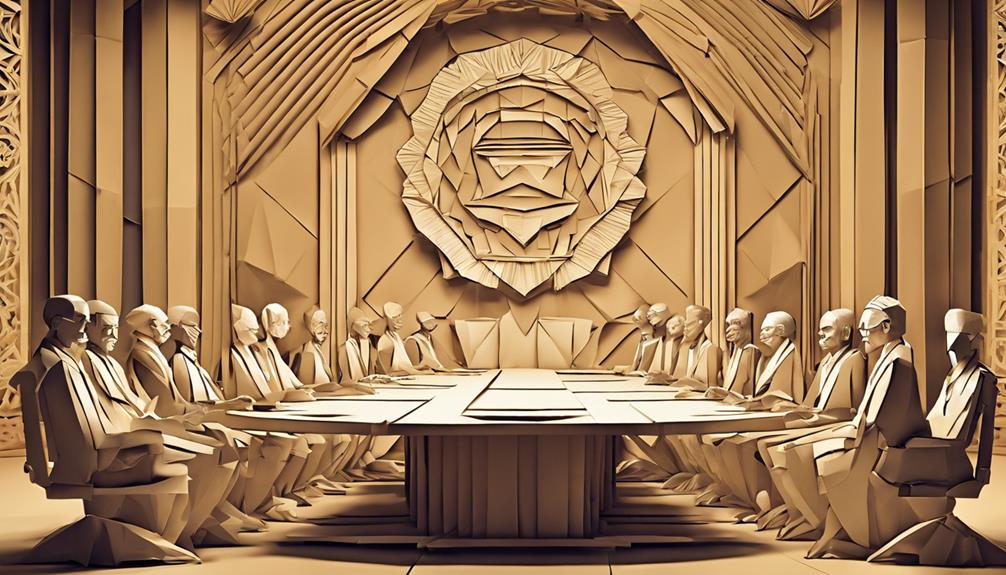
Effective communicators like Nelson Mandela, Mahatma Gandhi, Winston Churchill, Martin Luther King Jr., and Margaret Thatcher have demonstrated the power of persuasion, inspiring and influencing millions through their remarkable negotiation and communication skills.
You might wonder what made them so effective. The answer lies in their ability to connect with people on a deeper level. They understood the importance of inclusive dialogue, nonviolent resistance, and powerful rhetoric.
Mandela's negotiation style emphasized reconciliation, while Gandhi's persuasive communication led India to independence. Churchill's powerful speeches inspired a nation during wartime, and King's powerful speeches and nonviolent protests advanced civil rights. Thatcher's strong communication skills earned her the nickname 'Iron Lady.'
You can learn from these icons by incorporating their strategies into your own communication style. Practice active listening, use persuasive storytelling, and remain resolute in your convictions. By doing so, you'll become a more effective communicator, capable of inspiring and influencing others.
Legendary Dealmakers in Action
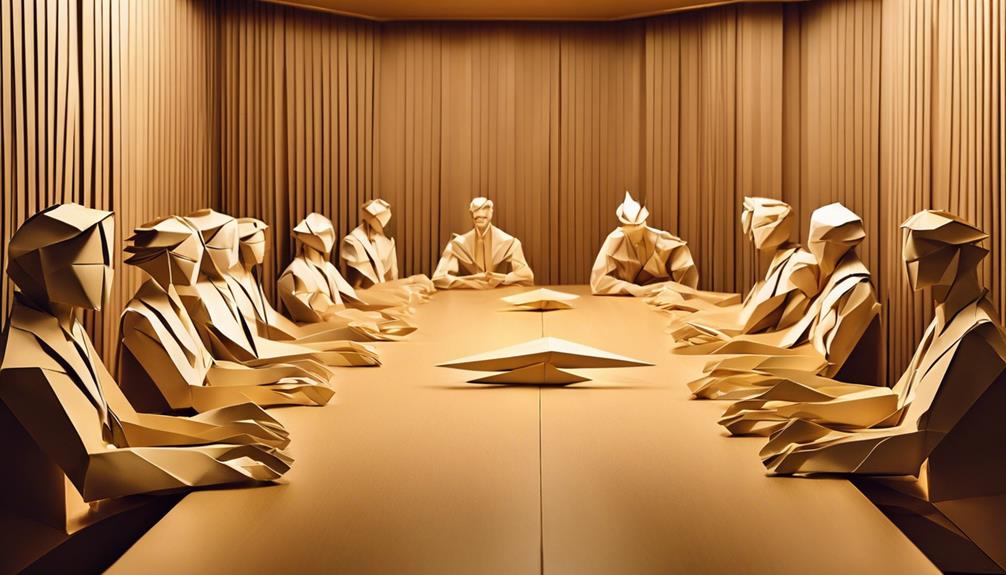
Behind the scenes of historic agreements and diplomatic breakthroughs stand legendary dealmakers who've mastered the art of negotiation, leveraging their unique styles and strengths to shape global events.
You're about to meet some of the most remarkable negotiators in history, who've left an indelible mark on the world stage.
Take a closer look at these legendary dealmakers in action:
- Nelson Mandela: His negotiation skills were instrumental in ending apartheid in South Africa through collaboration and principled compromises.
- Margaret Thatcher: Known as the 'Iron Lady,' she utilized strong persuasion tactics in negotiations to achieve her political goals.
- Henry Kissinger: A master of diplomacy, he employed strategic thinking and geopolitical knowledge to negotiate key international agreements.
These legendary dealmakers have demonstrated exceptional negotiation skills, achieving remarkable breakthroughs in global politics and diplomacy.
As you explore their stories, you'll gain valuable insights into the art of negotiation, and how it can be used to shape the course of history.
Frequently Asked Questions
Who Was the Most Powerful Negotiator?
You're wondering who's the most powerful negotiator? Well, it's Nelson Mandela, who ended apartheid in South Africa through collaborative efforts, strategic thinking, and a firm yet conciliatory approach, earning him a legendary status in the art of persuasion.
What Is Voss' Theory of Negotiation?
You're likely familiar with Chris Voss, a former FBI hostage negotiator, and his theory of negotiation, which emphasizes tactical empathy, active listening, and emotional intelligence to build rapport and influence outcomes.
Who Is a Master Negotiator?
You're a master negotiator when you skillfully persuade others, finding common ground and achieving mutually beneficial outcomes, possessing strong communication skills, emotional intelligence, and strategic thinking to build relationships and navigate complex conversations.
Who Is an Effective Negotiator?
You're an effective negotiator when you can persuade others, build relationships, and achieve mutually beneficial outcomes by being a skilled communicator, active listener, and strategic problem-solver who remains calm under pressure.
Can a Keynote Speaker Utilize Persuasion Techniques of Famous Negotiators?
When it comes to understanding keynote speakers, it’s important to consider their ability to utilize the persuasion techniques of famous negotiators. A skilled keynote speaker can draw from the tactics used by successful negotiators to capture and hold the attention of their audience, ultimately swaying them towards their message.
Conclusion
As you reflect on the master negotiators who've shaped history, remember that persuasion is an art that can be honed with practice and patience.
The adage 'well-behaved women seldom make history' rings true, as many of these iconic figures took bold risks to achieve their goals.
By studying their tactics and strategies, you can refine your own negotiation skills, becoming a force to be reckoned with in your personal and professional life.
So, take a page from their playbook and confidently assert your influence – the world is waiting for your unique brand of persuasion.

